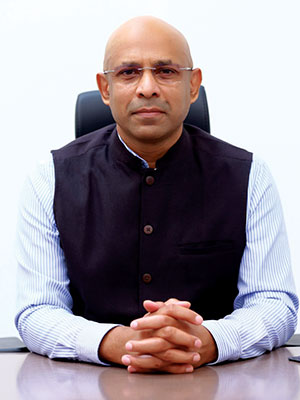
K.E Harish — CEO, Sadhbhavana Group, Kozhikode
A political science and education postgraduate of the University of Calicut, K.E. Harish is CEO of the Sadhbhavana Group comprising five education institutions including its flagship CBSE and Cambridge International (UK)-affiliated Sadhbhavana World School, Kozhikode (SWS, estb. 2008) with an enrolment of 643 students and 75 teachers.
What is your overview of the NEP 2020 released recently?
NEP 2020 is a progressive and welcome document. For example, it rightly accords primacy to early childhood education and foundational literacy and numeracy, prioritises vocational and skills education, allows academic flexibility, and shuns excessive compartmentalisation of curricular and co-curricular domains. However, some provisions such as the recommendation to use mother tongue/local language as medium of instruction until class V, Right to Education Act and its implications, funding for implementation, need to be clarified.
How satisfied are you with the switch of K-12 schools to online/blended learning during the current Covid-19 crisis?
Is this a beneficial development for school education? When the Covid-19 pandemic struck, the academic fraternity around the world was forced to take a crash course in information technology. What would have taken a decade to learn and adapt happened in a span of four months. However, it’s important to understand that schooling is a bundle of experiences beyond mere teaching-learning. School is where children learn socialisation, how to manage difficult situations and develop life skills. Therefore, online learning is no substitute for physical schooling.
The past few months have witnessed increasing government interference in fees and online education delivery. How much damage has this caused to private schools?
For governments, the pandemic crisis became just another opportunity to command and control private schools. Government circulars in different states of India have thrown private education into deep crisis. In a country where almost 50 percent of the student population is enrolled in private education institutions, state governments should at least engage and consult with private schools and/or associations before issuing arbitrary diktats.
What major initiatives has Sadhbhavana World School taken recently to upgrade teaching-learning?
SWS is in the process of transitioning from content to skills-driven schooling and developing students’ self-learning capabilities. We are one of few schools in Kerala to provide commerce and humanities streams at the senior secondary level and are committed to promoting these career paths. Moreover post-Covid, we plan to retain our digital learning system and follow a hybrid learning model.
What are your Top 3 proposals for reinventing India’s K-12 education system?
- Change government policy and legislation to allow ‘for-profit’ schools.
- Overhaul the teacher education system to make it flexible and practice-driven. Also encourage and incentivise continuous in-service training.
- Design a school accreditation process based on quality and grant full autonomy to schools which have proven high-quality standards.
Read the full story here on 25 leaders reinventing K-12 education


























